 Maxim Gorky - Jack - 58 years old . Maxim Gorky - Jack - 58 years old .
… We decided to meet in Lunaparks. I watch the young poet. Although Lunaparks revived Yesenin, I felt that such entertainment was not for him. He didn't look like a spoiled person who loves to draw. He seemed to have gotten into this dubious place by duty or courtesy, just as unbelievers attend church. He came and waited impatiently for the service to end soon, which would not hurt his soul. (P. 311.). |
Gorky, as a type of Jack - (activator) saw what was important in Yesenin. |
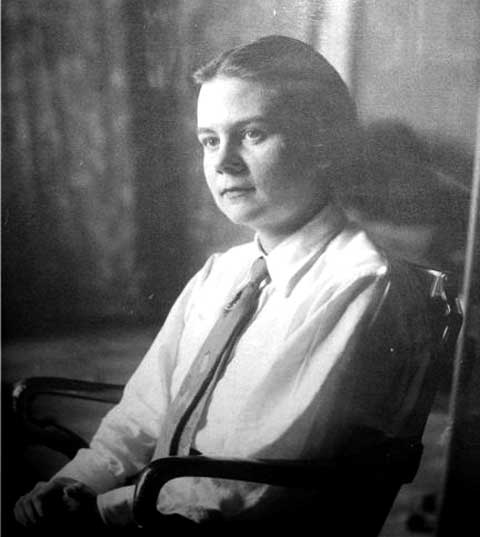 N. Krandijevska - Tolstoy: N. Krandijevska - Tolstoy:
"Duncana was 45 at the time, she looked attractive enough. But in her relationship with Jesenin, there was already a tragic decline in her youth and a longing for love. Scandals happened very often. Once upon a time, a particularly noisy scandal broke out at the Adlena Hotel. Aisedora ran across the room in the red cloak like a demon trying to destroy everything. When she opened the locker, she flew everything on the floor. Vases from the brackets flew from her strokes, shelves with services fell. Paintings were torn off the walls, chandeliers were torn off. Aisedora tore until there was nothing left to beat. " (P. 312.). 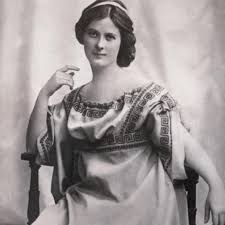 Aisedora Dunkana Aisedora Dunkana
A “Aisedora took Jesenin on a trip around Europe, allowing him to leave Russia. She suggested getting married. It was a selfless act because he had fallen victim to pain. Aisedora had no illusions about the resilience of the relationship, she realized that anxious happiness would not last long. The little wild boar she wanted to raise in her mind was too independent and disobedient. Aisedora had fallen in love with the poet, and she realized that this love had been her long despair from the very beginning ”(313). |
The description clearly and unequivocally shows that both had a bursting nature. A harmonious cohabitation requires the opposite - a partner of a peaceful nature.
Duncana wanted to subjugate Jesenin, to bring him up as he pleased. This clearly shows that she, too, was a dominant woman - a F. sensory function of |
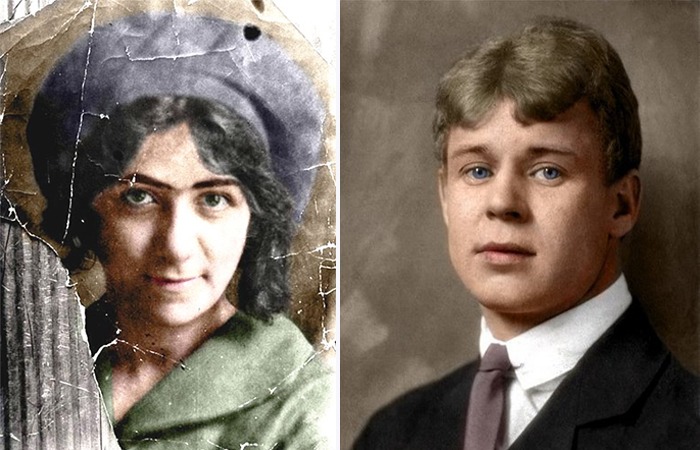 Galina Benislavsky: Galina Benislavsky:
Serge “Sergei told me a lot about his past, about his relationship with Duncan. It was both a passion and a kind of love. The passion lasted for about a year, but then everything passed away and nothing was left of it ”. (P. 335.).
"When I was overwhelmed with passion, I didn't notice anything, I didn't listen to anyone. … but now. Ak. god how blind i was then! What had happened to my eyes? But it always happens under the influence of passion. ”
"But on the other hand, how gentle she was with me! As the mother cared. She said I was very much like her dead son. (Duncan's two sons perished in the disaster) Yes, the passion was huge, but now it's all over. Emptiness in my soul now, complete emptiness "- this is Jesenin. (P. 336). |
Galina lived with Jesenin for a short time . |
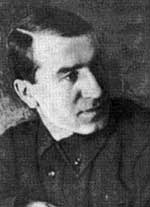 I Gruznov: I Gruznov:
"Jesenin had a very good memory, he remembered the face he had seen before. In addition, he remembered and memorized every movement he heard. In a friendly company with few acquaintances, he watched suspiciously as others treated him.
After studying the person, remembering everything he had done and said, he could change his attitude quickly. Sometimes forever (p. 340).
Yesenin was able to forgive all resentment, material damage, insults, misconduct, anything, as long as he knew that in the depths of his soul he was well treated. |
White or relationship ethics has the peculiarity of evaluating “how others treat me” R and Jesenin observed how others treat him. |
K. Ļevins:
… ”Dressed European, he looked elegant, stately and surprisingly beautiful, with twisting golden hair, blue shining goodness-telling eyes, a gentle, squeaking voice.
His relationship with Mayakovsky, who did not miss the opportunity to insult Jesenin, was quite strange. Yesenin was reluctant to enter into talks with Mayakovsky. Mayakovsky, on the other hand, wrote that Jesenin not only treated him carelessly, but also made no secret of his displeasure. Jesenin rebuked Mayakovsky for some of his poems. Yesenin said that Mayakovsky's poetry stinks of trade, not poetry. The two often spoke together, but even the manner of reading showed how different they were from people.
Mayakovsky read stingy, naked, as if from a great height, poetically stingy, as if explaining every word to the audience. Jesenin read passionately and confidently, embracing poetry as if in the waves, gesturing with his hands, clinging to his hair, curving, feeling and burning, as if dissolving in poetry.
Dear, dear, funny, dude,
Where is he going?
Does he really not know that horses will live?
Steel riders won. (P. 342 . ) |
Mayakovsky - Zhukov type from square II, which has different values than Sergei from square III. |
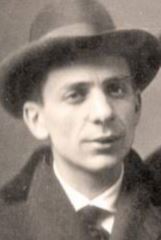 R. Ivņevs R. Ivņevs
As it turned out, the rift between Jesenin and Marengof was hidden from me. Maybe Jesenin didn't want to entangle me in his quarrels, or he didn't want to influence me so that I wouldn't follow him and break away from Marengof. Jesenin was never meticulous or vindictive. His generous soul prevented him from seeking allies to fight his former friends. (P. 348). |
ethics R. White "There was no revenge," says Reinin, a sign of positivism and emotivism.
|
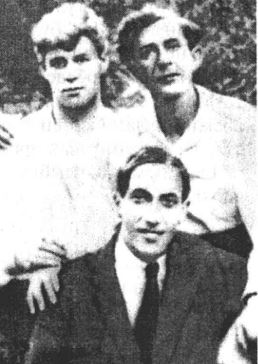 S. Jeseņins, L. Povickis, Maringofs. S. Jeseņins, L. Povickis, Maringofs.
L. Povickis:
Jesenin admitted to me, “Yes, I scandalized in America, but it was necessary there! I needed to be remembered and recognized. Do you think I'll read them poetry? Americans poetry? I would be ridiculed in their eyes. But here, with a tablecloth, tear off everything on the table, whistle in the theater, break the rules of the road - it makes them clear. If I can do it, then I'm a millionaire, so I can! Behold, honor also arose, and glory and honor to him. That's how they will remember me better than Duncan. "
The shining American capitalist appearance failed to entice Yesenin into it. (P. 350). |
Jesenin's desire to be remembered is a testament to the predominant black sensory F function. |
"I was born with songs on a blanket. The dawn of spring flooded me in the rainbow. ” It was written by the poet himself. In fact, the song was an indispensable companion in the poet's life. It affected the soul of little, gentle, cheerful Sergei from an early age. It was the Russian national songs that opened the beauty of the surrounding world to the boy, awakened love for people, family homes, beloved villages. (Page 10).
and sensory
.



 Reply With Quote
Reply With Quote
 Gorky 's observations: "sta real art arises where there is a sincere trust between the reader and the author." (P. 6).
Gorky 's observations: "sta real art arises where there is a sincere trust between the reader and the author." (P. 6).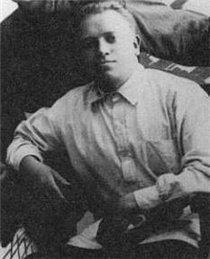 Peter Chagin. Detail after detail, paragraph after paragraph and the image of the poet in all realities of life illuminates. (Page 7).
Peter Chagin. Detail after detail, paragraph after paragraph and the image of the poet in all realities of life illuminates. (Page 7).  V. Chernavsky : “Sergei, although he had come from the countryside, quickly changed, he became more masculine, more serious, steadfast, as it seemed at first. But always thrilled and groomed ”. And sociable, friendly, helpful.
V. Chernavsky : “Sergei, although he had come from the countryside, quickly changed, he became more masculine, more serious, steadfast, as it seemed at first. But always thrilled and groomed ”. And sociable, friendly, helpful. 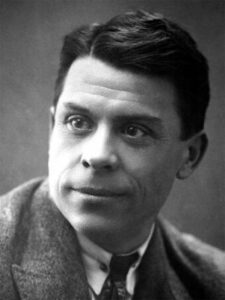 P. Oreshin - Jack , whose memories are filled with moments when Jesenin read poetry to his comrades: “His voice was heard all over the room, yellow curls falling across his face. He read with great fervor and expressive passion, as if he had just composed these lines, and had not yet cooled them. (P. 14).
P. Oreshin - Jack , whose memories are filled with moments when Jesenin read poetry to his comrades: “His voice was heard all over the room, yellow curls falling across his face. He read with great fervor and expressive passion, as if he had just composed these lines, and had not yet cooled them. (P. 14).  Aisedora Dunkana (Napoleon)
Aisedora Dunkana (Napoleon)  abroad Jesenin short time, about two and a half years, as the husband of Aisedora Duncan.
abroad Jesenin short time, about two and a half years, as the husband of Aisedora Duncan.  M. Gorky - Jack: “Sergei Yesenin cannot be considered so much
M. Gorky - Jack: “Sergei Yesenin cannot be considered so much 
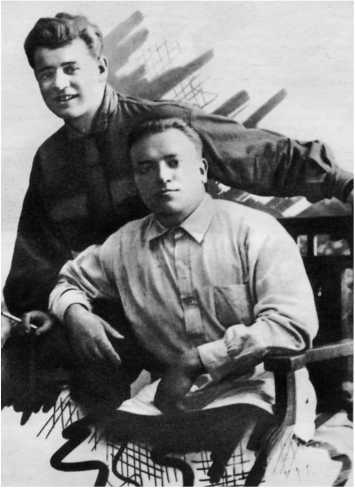





 J. Kopitins - Jack : “Little Sergius poetry was written at the age of 7. He was cheerful, reckless, and had many friends. We both caught crayfish in Oka, it was an indispensable way for him to rest. ”
J. Kopitins - Jack : “Little Sergius poetry was written at the age of 7. He was cheerful, reckless, and had many friends. We both caught crayfish in Oka, it was an indispensable way for him to rest. ”  Seventeen -year-old Yesenin arrived in Moscow without a penny in the spring of 1912. For some time he lived with Koshkar, attended meetings of a group of poets. It was then considered to be the most powerful organization of proletarian and peasant writers. It was there that the young poet began his public speaking for the first time. His talent was immediately noticed. … Members of the group helped Jesenin to get a job in a printing house. (P. 47)
Seventeen -year-old Yesenin arrived in Moscow without a penny in the spring of 1912. For some time he lived with Koshkar, attended meetings of a group of poets. It was then considered to be the most powerful organization of proletarian and peasant writers. It was there that the young poet began his public speaking for the first time. His talent was immediately noticed. … Members of the group helped Jesenin to get a job in a printing house. (P. 47)  G. Dejevs-Homjakovskis : Serge “Sergei continued to write poetry, their main motive was still the countryside and nature. He was able to capture the paintings created by nature and depict them in vivid images. It seemed to us that Jesenin would become not only a talented poet, but also a good public figure. He entered the team with amazing ease and courage. Always groomed and carefully dressed, he attracted people with his fun nature. As early as 1913-1914, he was able to take on the public service of the group as secretary. (P. 49).
G. Dejevs-Homjakovskis : Serge “Sergei continued to write poetry, their main motive was still the countryside and nature. He was able to capture the paintings created by nature and depict them in vivid images. It seemed to us that Jesenin would become not only a talented poet, but also a good public figure. He entered the team with amazing ease and courage. Always groomed and carefully dressed, he attracted people with his fun nature. As early as 1913-1914, he was able to take on the public service of the group as secretary. (P. 49). Anna Izrjadnova :
Anna Izrjadnova :  D. Semjonovskis :
D. Semjonovskis :  Alexander Block - Hamlet
Alexander Block - Hamlet  St. Petersburg (1915-1918)
St. Petersburg (1915-1918) S. Gorodeckis-Hamlets
S. Gorodeckis-Hamlets  Nikolai Klujev - Dostoevsky
Nikolai Klujev - Dostoevsky  R. Ivnev : “Jesenin loved to joke and smile, he laughed. He was able to turn the most serious conversation into a joke, and vice versa. The conversation about jokes could noticeably become serious.
R. Ivnev : “Jesenin loved to joke and smile, he laughed. He was able to turn the most serious conversation into a joke, and vice versa. The conversation about jokes could noticeably become serious.  Rozhdestvensky : “His self-confidence did not seem intrusive at all, but the fact that he praised himself was so natural that no one could think of the author's overconfidence. It had nothing to do with his superior simplicity. I responded openly to Yesenin's openness. After a few minutes, we talked amicably.
Rozhdestvensky : “His self-confidence did not seem intrusive at all, but the fact that he praised himself was so natural that no one could think of the author's overconfidence. It had nothing to do with his superior simplicity. I responded openly to Yesenin's openness. After a few minutes, we talked amicably.  Volodya Chernavsky : “The first impression surprised us, a touching young man who has real poetic feelings. He read the poet louder than he talked. It was felt that everything came from the heart, later reading improved. The swaying of his boy's yellow hair head remained the same, sometimes it seemed that he was singing a little. The rhythm seemed stubborn and stiff, without any pretense. People did not allow him to rest, demanded to repeat, kissed him, some even wiped away tears.
Volodya Chernavsky : “The first impression surprised us, a touching young man who has real poetic feelings. He read the poet louder than he talked. It was felt that everything came from the heart, later reading improved. The swaying of his boy's yellow hair head remained the same, sometimes it seemed that he was singing a little. The rhythm seemed stubborn and stiff, without any pretense. People did not allow him to rest, demanded to repeat, kissed him, some even wiped away tears. 
 K. Sluchevsky - Dostoevsky: I remember the fact that in 1916 Jesenin was drafted into the army and assigned to one of the tsar's hospitals as a sanitary, outside the hospital, he walked in private, unlike others, army clothes. Although the period was difficult, he was still meticulously dressed.
K. Sluchevsky - Dostoevsky: I remember the fact that in 1916 Jesenin was drafted into the army and assigned to one of the tsar's hospitals as a sanitary, outside the hospital, he walked in private, unlike others, army clothes. Although the period was difficult, he was still meticulously dressed. 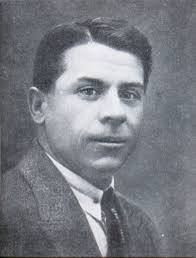 Peter Oreshin - Jack: It was in St. Petersburg in the autumn of 1917, when the air was already in the air after October. Sergey was 22 at the time. His slender figure spoke of a confident young man who also lacked physical strength. His view signaled determination. When Sergei came to me, I well remember his elegant appearance - I was wearing a gray, well-groomed jacket, meticulously ironed trousers, a white shirt with a high collar and a blue tie. (P. 160).
Peter Oreshin - Jack: It was in St. Petersburg in the autumn of 1917, when the air was already in the air after October. Sergey was 22 at the time. His slender figure spoke of a confident young man who also lacked physical strength. His view signaled determination. When Sergei came to me, I well remember his elegant appearance - I was wearing a gray, well-groomed jacket, meticulously ironed trousers, a white shirt with a high collar and a blue tie. (P. 160).  Zinaida Raiha Wife of
Zinaida Raiha Wife of 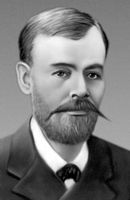 The most characteristic details of his image: it does not matter whether Sergei talked to a woman or a man, his smile did not change. He spoke kindly to everyone. Did not notice at his nervousness, always sure, safe. Cylinder on the head, lacquered boots. But he often got involved in scandals. (P. 195).
The most characteristic details of his image: it does not matter whether Sergei talked to a woman or a man, his smile did not change. He spoke kindly to everyone. Did not notice at his nervousness, always sure, safe. Cylinder on the head, lacquered boots. But he often got involved in scandals. (P. 195).  Timofeyev and someone else, I don't remember who anymore. " (222).
Timofeyev and someone else, I don't remember who anymore. " (222).  …… 1919. Jesenin's speech was announced, and here he is on the stage. Exactly the same as in our first meeting: light thick hair, but, well-groomed, looked like a combed linen crest, blue eyes with a sparkle of goodness. Dress neatly and carefully. Read like an expert with a spell. Typically, he always stretches his arms wide forward, as if connecting with listeners. His poems made a strong impression on the audience, followed by stormy and heartfelt applause. (P. 232).
…… 1919. Jesenin's speech was announced, and here he is on the stage. Exactly the same as in our first meeting: light thick hair, but, well-groomed, looked like a combed linen crest, blue eyes with a sparkle of goodness. Dress neatly and carefully. Read like an expert with a spell. Typically, he always stretches his arms wide forward, as if connecting with listeners. His poems made a strong impression on the audience, followed by stormy and heartfelt applause. (P. 232). M. Roizmans :
M. Roizmans : 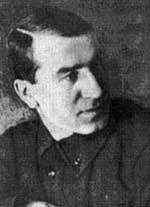 Ivan Gruzinov:
Ivan Gruzinov: 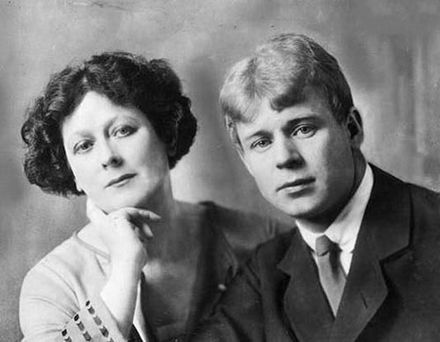
 During this year and a half, Jesenin had changed his image, adopted a bourgeois look. But on his return, the brilliance of the bourgeoisie fell, and he remained the former. (P. 286).
During this year and a half, Jesenin had changed his image, adopted a bourgeois look. But on his return, the brilliance of the bourgeoisie fell, and he remained the former. (P. 286). glory. There was something frightening about this love, like insanity. According to the observations, women did not play a leading role in his life. " (P. 295.).
glory. There was something frightening about this love, like insanity. According to the observations, women did not play a leading role in his life. " (P. 295.).  N. Krandijevska - Tolstoy:
N. Krandijevska - Tolstoy:  Aisedora Dunkana
Aisedora Dunkana  Galina Benislavsky:
Galina Benislavsky:  I Gruznov:
I Gruznov:  S. Jeseņins, L. Povickis, Maringofs.
S. Jeseņins, L. Povickis, Maringofs. 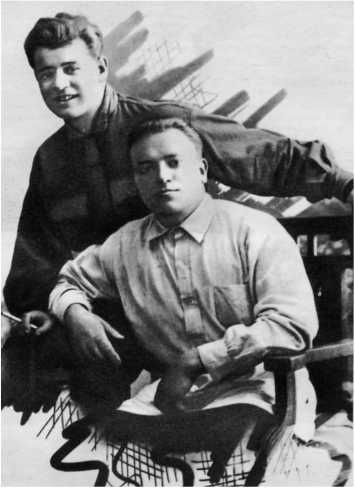 Yesenin with P. Chagin
Yesenin with P. Chagin  Leningrad in 1925
Leningrad in 1925 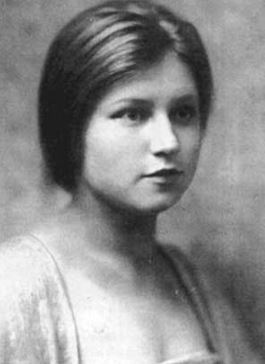 Alexander, Yesenin 's sister:
Alexander, Yesenin 's sister: 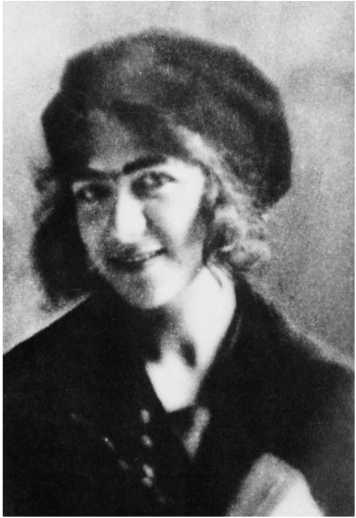 Galina Benislavsky:
Galina Benislavsky: 
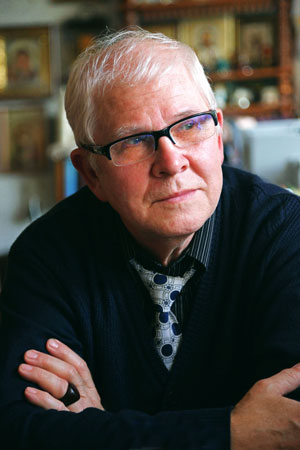 Nikolai Astafyev
Nikolai Astafyev 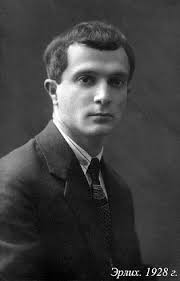 Wolf Erlihs.
Wolf Erlihs. 